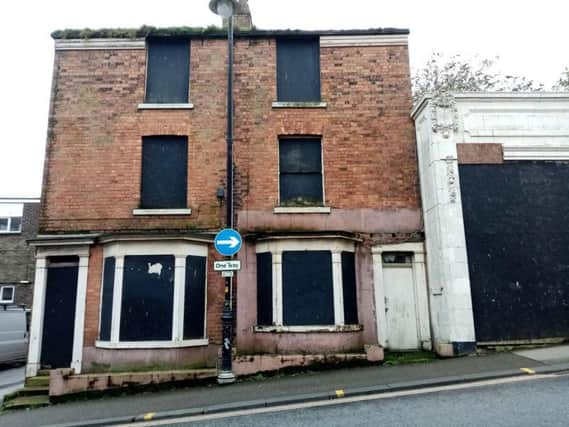Empty building owners ‘exploiting loopholes’ to deprive councils of millions


Owners of shops, offices and industrial units that become empty do not have to pay business rates for the first three to six months to allow them to invest in the property and give landlords time to find a new occupant.
In some areas of Yorkshire with high numbers of empty properties, this tax relief amounts to millions of pounds.
Advertisement
Hide AdAdvertisement
Hide AdAlso in news: Yorkshire transplant patient given new lease of life thanks to ground-breaking Leeds hospitals machineBradford Council lost 4.3 per cent of business rates revenue to empty property relief in the 2018-19 financial year, the largest percentage of any Yorkshire local authority This represented £7.96m of tax it was unable to claim from property owners.
Over the same period, Leeds City Council lost £18.22m, 4.1 per cent of its business rates income, to empty premises relief.
On the other end of the scale, the North Yorkshire towns of Scarborough, Richmondshire and Selby had the lowest average rates of business rates relief.
Across England and Wales, the cost to the taxpayer of empty business units has now risen to more than £1bn a year.
Advertisement
Hide AdAdvertisement
Hide AdBusiness rates are a key source of revenue for councils, which have seen their budgets slashed by 40 per cent on average in the last decade.
Coun. James Lewis, Leeds City Council’s deputy leader and executive member for resources, said new legislation introduced in 2008 should have meant fewer buildings were standing empty but this has not necessarily happened.
He said: “Following the change in the legislation there has been a growth in empty rate avoidance schemes which seek to exploit loopholes in the legislation to obtain repeated periods of exemption. The level of empty property rates relief is therefore considerably greater than that intended by the legislation.”
However, the level of empty rate relief awarded in Leeds has still fallen significantly from a peak of £23.6m in 2013/14 to £18.2m in 2018/19 and has also declined as a percentage of the potential income, he said.
Advertisement
Hide AdAdvertisement
Hide AdCoun. Lewis added: “In contrast the level of mandatory rate relief has increased from £21.65m in 2013/14 to £27.57m in 2018/19, primarily due to the increase in academies which receive 80 per cent relief whereas the majority of the local authority schools they replaced did not receive any.”
For shops and offices, business rates relief applies for three months and for industrial buildings it is six months.
Owners of listed buildings are not required to pay business rates at all while the building is empty.
Advertisement
Hide AdAdvertisement
Hide AdThis could be one reason why Bradford Council is the local authority with the highest percentage of business rates relief for empty properties, as it has 2,408 listed buildings - more than any other town or city in Yorkshire, including much larger cities like Leeds and Sheffield.
Dominic Curran, property advisor at the British Retail Consortium, said last year was “a challenging year for many retailers”.
He added: “High among the concerns for retail firms is business rates – a tax which disproportionately harms retailers, driving shop closures and job losses, leaving empty shopfronts and harming local communities.
Advertisement
Hide AdAdvertisement
Hide Ad“It is essential that the Government makes good on its pledge to reform this broken tax system.”
A HM Treasury spokesperson said: “Whilst the rate of business rates collection varies between individual authorities, the local government finance system has been designed so that business rates income is redistributed across the country according to the needs of local areas.
“We will announce further details of the business rates review in due course.”
Bradford Council has also been approached for a comment.